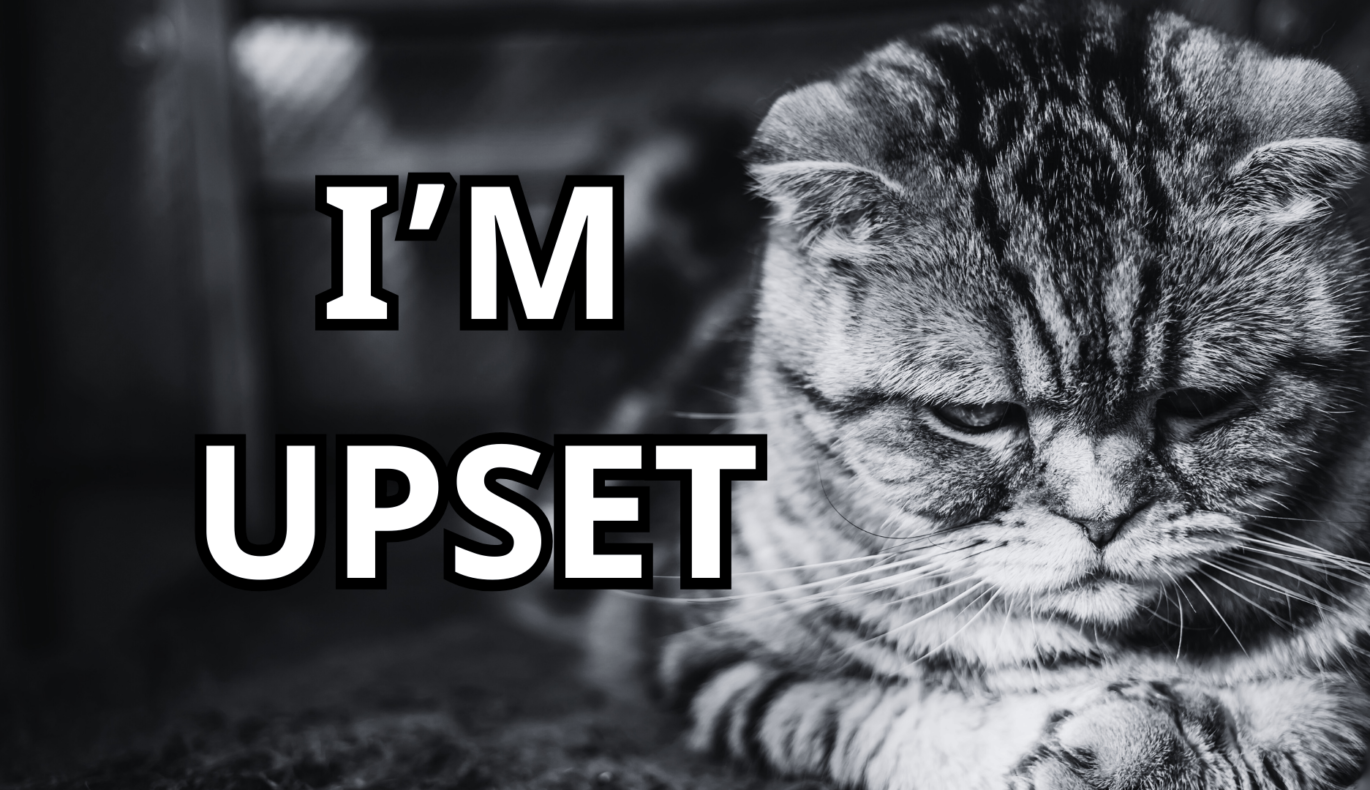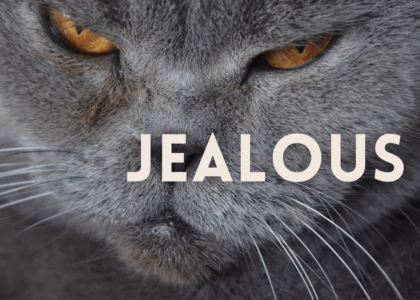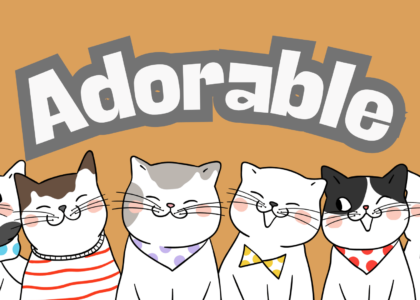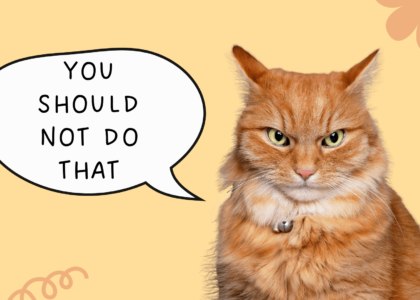You bend down to tie your shoe and—thunk—your cat lets out a dramatic yowl. You just stepped on their tail. They sprint out of the room like you’ve personally betrayed them. Now you’re left standing there, feeling like the worst human alive.
You call their name. Nothing. You shake the treat bag. Silence. You find them hiding under the couch, glaring at you like you’re a villain in their life story. You start to wonder: did I just ruin our entire relationship?
Cats are mysterious creatures. One minute, they’re curling up in your lap, purring like a tiny engine. The next, they’re staring at you from a distance, blinking slowly as if deciding whether you’re still worthy of their presence. We know dogs forgive us instantly. But cats? That’s a different story.
Some people swear their cats hold grudges. Others say cats don’t even have the emotional range to be mad. So which is it? Do cats actually forgive us, or do they just tolerate us because we control the food supply?
By the end of this video, you’ll know exactly where you stand in your cat’s heart. And no, this won’t be six minutes of guessing. We’re going to dive into the science, the signs, and the truth about whether your cat is plotting their revenge—or just waiting for dinner.
Cats do not cry when they’re sad. They do not wag their tails when they’re happy. And they definitely do not write long, dramatic texts at two in the morning when they’re upset with you. But that does not mean they don’t feel things.
A cat’s emotional world is like a secret club. No neon signs, no clear invitations, just a few subtle signals that you either learn to decode—or miss entirely. Unlike humans, cats do not experience guilt, at least not in the way we do. If they knock your glass of water off the table, they will not sit there reflecting on their actions. They will watch it fall. They will watch you react. And if given the chance, they will do it again.
But does that mean cats have no emotions? Not even close. They feel fear, excitement, annoyance, and affection. They just express it in ways that make sense to them. A slow blink is a love letter. A flicking tail is a warning sign. A headbutt is a stamp of approval.
So when we talk about forgiveness, we have to ask: is it about letting go of anger, or simply not holding onto it in the first place? Cats do not dwell on the past the way humans do. They are too busy living in the present, deciding whether your lap is a safe place to sleep—or the site of their next betrayal.
Your cat is not sending you angry texts. They are not blocking you on social media. But if they are mad at you, you will know.
First, there is the avoidance phase. You call their name, and they suddenly forget English. You reach out, and they act like your hand is made of fire. A cat who once lounged in the middle of the room now mysteriously relocates under the bed, just out of reach. This is the feline equivalent of “I need some space.”
Then comes the cold stare. Cats have mastered the art of silent judgment. They will sit just far enough away to remind you that you are no longer on their favorite-human list. They will squint at you like they are calculating whether you still deserve their presence.
If you have really messed up, you might get the tail flick of disapproval. It is subtle. Just the tip of the tail, swishing back and forth like a slow-motion metronome of disappointment. It is not full-blown anger, but it is a warning: you are on thin ice.
Some cats take it a step further with a well-timed act of petty revenge. Maybe they ignore you when you finally sit down to cuddle. Maybe they knock something off the counter with the kind of casual destruction that says, “This is what you get.”
So do cats hold grudges? Maybe. But unlike humans, they do not plot their revenge for days. They react, they express, and then they decide—usually based on food, comfort, and mood—whether they are ready to forgive.
Scientists have spent years studying feline behavior, and the results are both fascinating and slightly humbling for us humans. Cats do not hold grudges in the way we do, but they also do not exactly forgive—at least, not in the way we want them to.
One key study on animal memory found that cats have short-term recall that lasts about 16 hours. That means if you step on their tail in the morning, they might still be annoyed with you by dinner, but by the next day, it is probably forgotten. Compare that to dogs, who can forgive in minutes, or humans, who can stay mad for years.
However, cats have long-term memory, too. They remember places, routines, and the people who consistently treat them well—or not so well. If a cat associates someone with safety and comfort, they will likely remain affectionate, even if that person occasionally makes a mistake. But if a cat has a history of bad experiences with someone, they will not forget. This is why a cat might run at the sight of their carrier. They do not recall every vet visit in detail, but they remember that box = bad news.
So where does forgiveness fit into all of this? Cats do not “forgive” in an emotional, moral way like humans do. They do not weigh past events and decide you are worthy of redemption. Instead, they make decisions in the moment: Is this person safe? Is this environment comfortable? Do I want to engage?
If the answer is yes, they move on. If the answer is no, well… you might need to break out the treats.
Your cat is ignoring you. The betrayal is fresh. The trust is broken. You are desperate to make amends, but this is not a human relationship—you cannot apologize with flowers and a heartfelt speech.
The good news? Your cat is not actually mad. But they are feeling cautious, and that means you need to rebuild trust on their terms.
First, give them space. Do not chase them. Do not pick them up to “make it better.” Cats are independent creatures, and forcing affection too soon will only make them more suspicious. Instead, let them come to you when they are ready.
Next, re-establish the good stuff. Food is your greatest ally here. If your cat has a favorite treat, now is the time to casually place it nearby and walk away. No begging, no pressure—just a peace offering. Bonus points if you do this while speaking softly, using the same tone you would if you were inviting them to sit in your lap.
When they start to warm up, respect their body language. A hesitant tail flick? They are still deciding. A slow blink? You are back in their good graces. Pay attention to their signals, and do not rush the reunion.
Finally, earn back physical affection. If your cat used to love head scratches, do not assume they are ready for them again immediately. Start with small gestures—a hand resting nearby, an outstretched finger—and let them initiate contact. The moment they lean into you? Congratulations. You have been forgiven.
In the end, rebuilding trust with a cat is not about grand gestures. It is about proving, in quiet, consistent ways, that you are still their safe space. And when they finally climb into your lap again, purring like nothing ever happened, you will know it was worth the wait.
Cats do not sit around contemplating forgiveness. They do not replay past events, wondering if they should give you another chance. They live in the present, making decisions based on one thing: what serves them best right now.
If holding a grudge meant sacrificing a warm lap or a full food bowl, most cats would let it go. Not out of emotional generosity, but because they prioritize comfort over conflict. They are practical creatures. If trust is broken, they do not forgive in the way humans do—they simply reassess. Are you still a source of safety? Do you still provide food, warmth, and affection? If the answer is yes, they will move forward. If the answer is no, they will keep their distance.
This is why some cats bounce back immediately after an incident, while others seem to remember a negative experience for much longer. It is not about moral judgment. It is about whether they still feel secure with you.
So do cats forgive? Not in a human sense. There is no emotional debate, no weighing of past mistakes against present comforts. They do not cling to resentment, but they also do not extend forgiveness as a gift. They simply make a decision, moment by moment, about whether you are still worth their trust.
And when they do decide to curl up beside you again, it is not because they forgave you. It is because, in their world, you have proven yourself useful once more. And honestly? That is probably the highest honor a cat can give.
Your cat is not keeping score. They are not holding secret meetings with the neighborhood strays to discuss your crimes. If they are avoiding you, it is not personal—it is instinct. And if they come back, it is not because they forgave you. It is because they decided you are still worth their time.
Cats do not dwell on the past. They live in the moment. So if you have wronged your feline overlord, do not waste time worrying. Just give them space, offer a treat, and let them decide when they are ready to move on.
And if they curl up in your lap tonight like nothing ever happened? Take the win.






